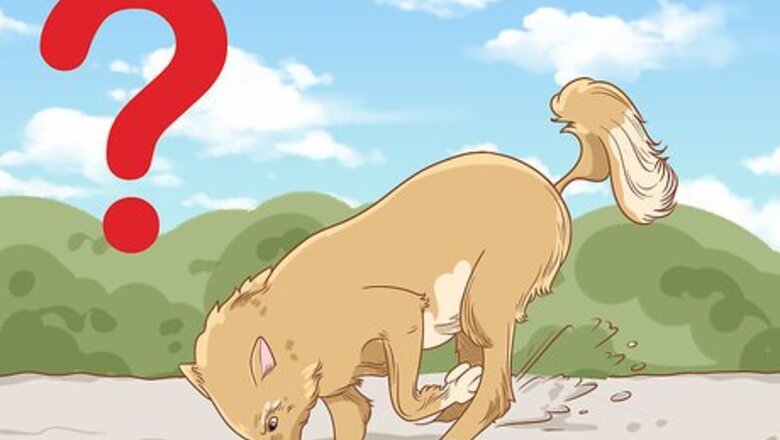
views
Addressing the Behavior
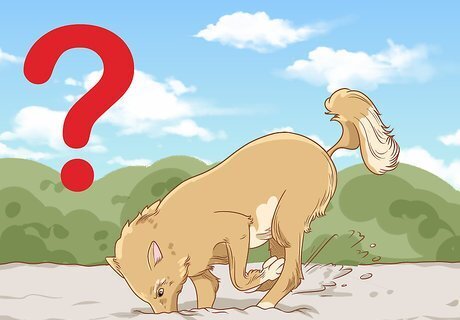
Diagnose the problem. If you can figure out why your dog is digging holes, your odds of changing the behavior will dramatically improve. Some digging is random and unable to be diagnosed, but usually there are discernible reasons for the behavior. Dogs often dig holes for one (or more) of these five reasons: entertainment, physical comfort, attention-seeking, escape, or prey-seeking. Watch when, where, and how your dog digs, and you can probably determine why he digs. Keep in mind that digging is a natural instinct for most dogs, and is unlikely to be completely stopped. Some dogs have been bred to dig; terriers and dachshunds, for example, were bred to hunt badgers. If you know digging will be a major problem for you, investigate a dog breed's propensity for digging before selecting a new pet.
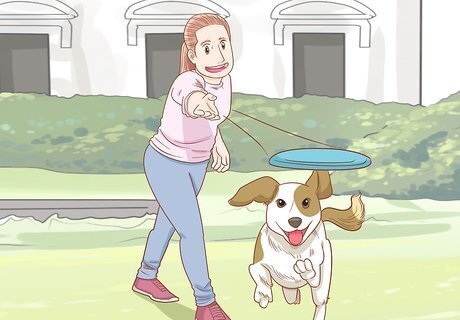
Give your dog more attention. As many a dog-lover can attest, canines are not all that different from children in many ways, including a desire to get attention by whatever means necessary. Your dog may have learned that digging a hole in your nice garden gets attention from you, even if that attention is of the negative variety. If you think this might be the case, ignore the dog after the digging and lavish your dog with attention for other, good behavior. Additionally, make sure your dog has plenty of time with you on other occasions. A happy dog won't need to find attention in all the wrong places. Punishing your dog for digging by banishing her from your presence is likely to only exacerbate the behavior.
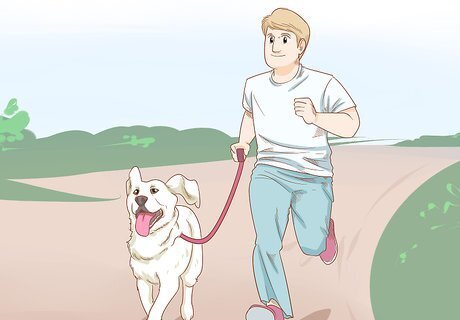
Reduce your dog's boredom. Dogs often dig for no other reason than simply because they are bored. Your dog may be bored if he stares at fences for a long time, whines, or engages in playful or "hyperactive" behavior, including digging holes. To stop your dog from being bored: Provide entertainment with toys and play time, especially if the dog is young and doesn't have any other outlets. Rotate the toys every so often in order to keep the dog excited. Exercise your dog vigorously with walks or runs. Walk your dog at least twice a day, and consider playing fetch with a tennis ball launcher to really get him tuckered out. A tired dog is all you really need to stop the digging. Let your dog socialize with other dogs. Bring your dog to the dog park and let him sniff, saunter, and socialize to his heart's content. Dogs are almost never bored when there are other dogs around.
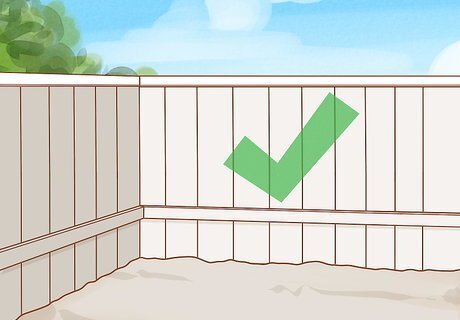
Create safe discouragements. You have to catch the dog in the act of digging a hole if you want to effectively associate your disapproval with the activity. Since most of the digging is likely to happen while you're not watching, you need to find ways to make the act of digging while you are not around a little bit less pleasurable for the dog. Remember: punishing the dog for digging after the fact will not solve the problem, and it could just worsen any anxiety that is causing the digging in the first place. Use garden fencing to close off an area of frequent digging. Even a minor barricade may prove enough of a deterrent. Partially bury rocks in areas of frequent digging. They will make digging more difficult and less enjoyable. Larger, flat rocks work best, as they're the hardest to move aside. Bury chicken wire or chain-link fencing just under the surface of the dirt. The wire on the dog's feet will feel uncomfortable. This usually works best near the fence (see Tips, below).
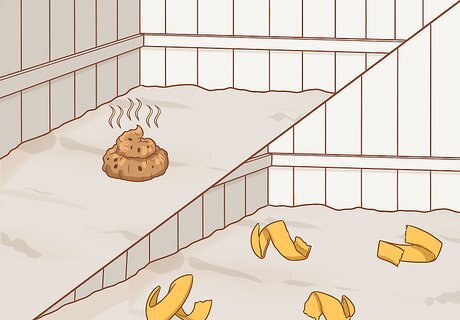
Try more unpleasant (but not harmful) discouragements if your dog continues to dig. If you've unsuccessfully tried to discourage your dog from digging the polite way, it may be time to step up your tactics. Here are some less pleasant ways of discouraging your dog from digging. Some dogs hate the smell of their own feces. Putting some of your dog's own feces in the hole will make it less pleasurable. However, there are many dogs who eat their poop and will gladly see this as you burying their favorite treat. It depends on the dog. Bury a small inflated balloon in the dog's hole and cover it with a layer of dirt. The unpleasant surprise when the dog pops the balloon will take away some of the dog's digging pleasure. If you're more creative, you can set up a motion sensor that unleashes a sprinkler or loud noise whenever the dog enters a "no-digging" area. Use citrus peels to guard the area. Many dogs really dislike the smell of orange, lemon, and grapefruit peels. (Some dogs don't mind.) Peel an orange or get some orange juice on your hand and bring your hand up to the dog's nose. If she backs away or is anxious, you know it's fair game.
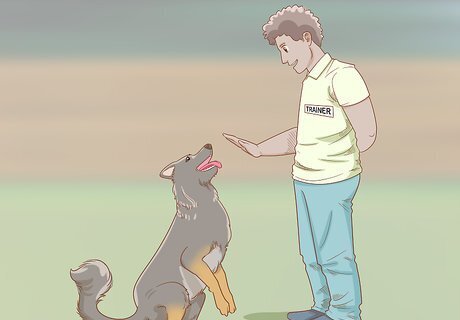
Seek professional assistance as needed. If you are having trouble diagnosing why your dog digs, or in stopping the digging even if you know why it happens, it may be time to call in the pros. Certified dog trainers and animal behaviorists can offer you personalized tips and techniques for addressing the causes and conditions of your dog's digging. Consider enrolling yourself and your dog in a basic training class. Implement the calm, assertive approach used in basic training and your dog should see you as the leader of the pack. When everything is done properly, your dog should show deeper respect for you and remember all the commands taught at the training. Teach your dog basic commands such as "Stop," "Sit," "Heel," etc. Practice these tricks once a day for 10 minutes. Ignore failures and immediately reward success. When you see your dog in the act of digging a hole, utilize negative reinforcement. Without being seen, create a loud noise (for instance, with a soda can with several coins inside) that will distract the dog. This unpleasant noise will become associated with digging.
Changing the Conditions
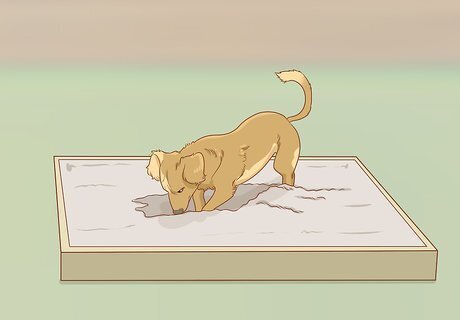
Construct a doggy-digging "sandbox." This is a designated, defined area of your yard where it is okay for the dog to dig. Encourage your dog to play in this area instead of the restricted area. Use wooden beams or low fencing to define the sandbox and fill it with freshly tilled earth. Bury treats and smelly things in the sandbox to encourage your dog's use and attention. If you catch your dog digging in an non-designated area, firmly say "No digging!" and bring her over to the designated digging area where she can dig in peace. Immediately reward digging within the sandbox.
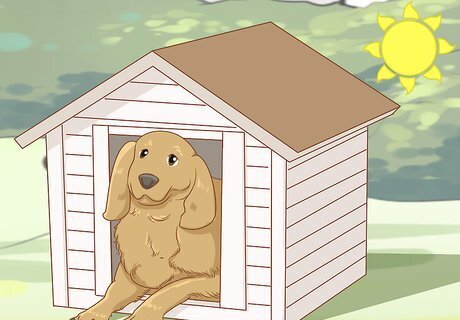
Create a shaded area for your dog outside. If you don't have an outside shelter to keep your dog cool in hot weather, he might be digging to find a respite from the heat. This is especially likely if the digging is near the foundations of buildings, trees, or water sources. Provide your dog with a nice, comfortable dog house in which to escape the heat (and cold) of the day. Don't let your dog outside without adequate protection in cases of extreme heat or cold. Keep your dog inside more often if necessary. Make sure your dog has a filled water bowl that can't be tipped over, leaving your dog without water the entire day.
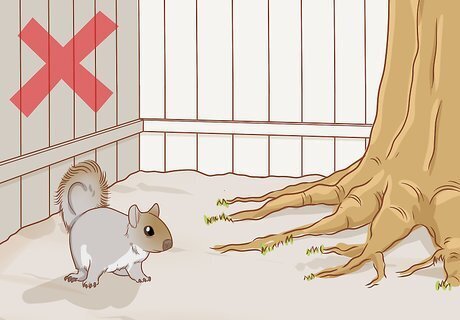
Eliminate any prey that your dog may be chasing. Some dogs are natural hunters and love the thrill of the chase. If the dog digs at the roots of trees or plants, or there's a raised path leading to the digging site, it's possible that your pet has spotted a rodent or other type of animal to hunt. Find a safe way to trap and relocate, fence out, or otherwise make your yard unattractive to the unwanted animal(s). (Call an expert if you're unsure of what animal you may be dealing with.) Do not use any poison to exterminate the prey animal from your yard. Any poison that could harm a rodent could potentially harm your dog, too.
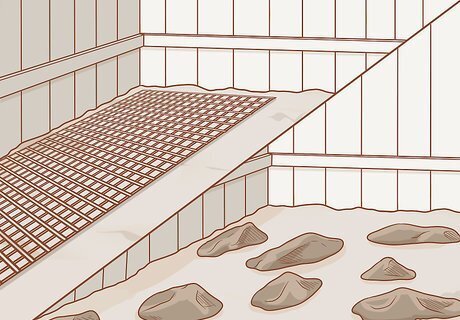
Keep your dog from escaping. Your dog may be trying to escape the premises to get to something, to get somewhere, or to simply to get away. This is the case especially if the digging happens near fencing. If you think this may be the case, try to figure out what your dog is running to or from, and provide incentives to stay put in the yard. Bury chicken wire underneath the bottom border of the fence. Make sure any sharp areas are pointed up and in, or at least away from your dog so she doesn't injure herself. Line the fence with partially-buried rocks that block progress. Bury the fence even deeper into the ground. Fences that are buried 1 to 2 feet (0.3 to 0.6 m) deep have little chance of being breached. If your dog is trying to escape to another yard (with another dog, for instance), you may want to consider putting up new fencing that blocks the line of sight to that apparent doggy oasis.
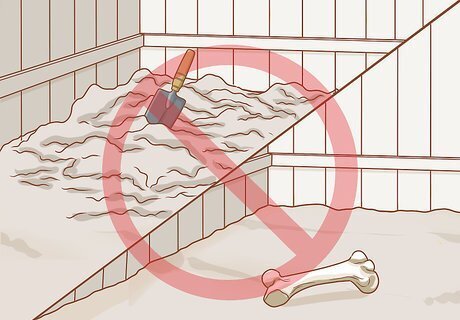
Remove temptations. The more temptations the dog has, the harder it is to resist digging. If you create a yard that is less tempting to dig holes in, the behavior will be much easier to keep under (relative) control. Dogs enjoy digging in freshly tilled earth. If you are working in your garden, remove fresh dirt from your dog's reach with a fence or covering. Go out and dig up any bones or other things your dog has buried. Do not let the dog see you do this, or it may be seen as part of a fun, back-and-forth game. Fill the hole back in, and add discouragements (see above) as needed. If you do gardening, do not let your dog see you till or dig in the earth, as this would simply be positive reinforcement. (Basically, "If you can do it, why can't I?") Keep your garden clean. Remove attractive smells. As noted above, deal with any rodent or other small mammal problem.














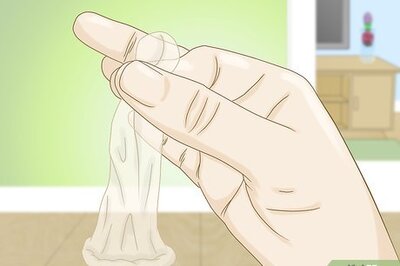



Comments
0 comment